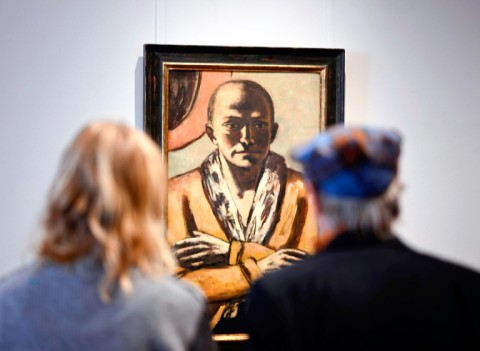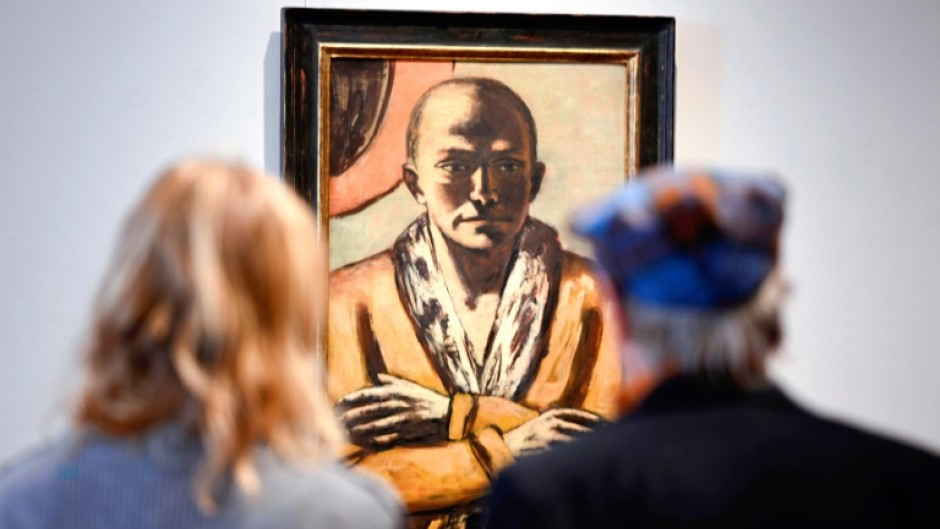
BERLIN - A remarkable wartime self-portrait of painter Max Beckmann will be auctioned in Germany next week, valued at a record-setting estimate of up to 30 million euros.
"Selbstbildnis gelb-rosa" (Self-Portrait Yellow-Pink), widely considered a masterpiece and in private hands since it was painted in 1943, features the artist during his Dutch exile from Nazi Germany.
It was initially a gift to his wife Mathilde, known as Quappi, who kept it until her death in 1986. The picture has been in a private Swiss collection for decades, and not shown in public since the mid-1990s.
"No comparable artwork has been offered on the German auction market since 1945," said Micaela Kapitzky, director and partner of Berlin's Grisebach auction house, which is handling the sale on December 1.
Its potential selling price has been valued at a whopping 20-30 million euros -- the highest pre-sale estimate for an artwork ever offered in Germany and for a Beckmann work worldwide, according to Grisebach.
The painting was displayed behind glass at a public preview this week to guard against vandalism by climate activists who have been targetting artworks.
Private collections, museums and other institutions around the world have expressed interest in acquiring the painting. Its historical and social significance have sent its value soaring, amid a booming German art market profiting from Brexit woes.
Beckmann's time in Holland was marked by relief at escaping Nazi Germany but frustration at being unmoored -- an ambivalence that surfaced in striking ways in his work, Kapitzky told AFP.
"He flees the Nazis and then is surrounded by them again (in occupied Holland) and yet somehow he manages to find this surprising inner peace," she said of the picture at auction.
"He knows of his importance as a painter. There's even a subtle smile that you can see."
Kapitzky said the self-portrait was also a testament to the "intimate" love story between Beckmann and Quappi against the backdrop of World War II's horrors.
"Quappi always kept it, until her death. She never separated from it," Kapitzky said. "Max Beckmann was a very self-confident man but he needed Quappi at his side."

